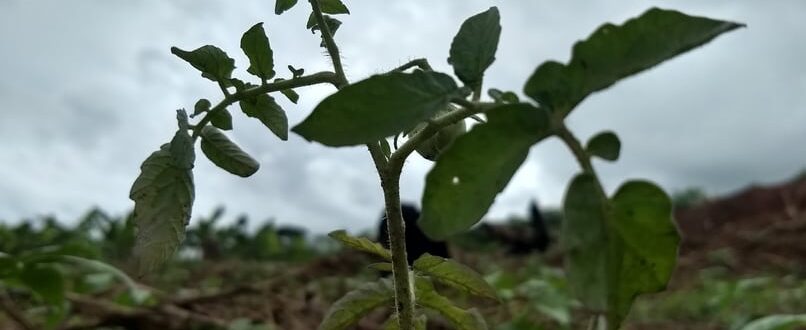The membership of the Peasant Farmers Association of Ghana (PFAG) being majority of small holder farmers in Ghana and leading the Food Sovereignty Platform is disappointed by an attempt by the Minister-designate for agriculture and other members of the Appointment Committee of Parliament to misinform Ghanaians about the true implication of the Plant Breeders Bill to agricultural development in the country.
What is even sadder is that he managed to convince members of the Committee that Food Sovereignty Ghana, a Civil Society Organisation, did not actually know what they were about when they petitioned the Committee not to approve the Minister designate. PFAG would like to put on record that the campaign against the passing of the Plant Breeders Bill in its current form and the campaign against the introduction of Genetically Modified Organisms (GMOs) are separate and distinct.The campaign against the Plant Breeders Bill began in 2013. After thorough analysis of the Bill, we identified serious negative implications to Ghanaian small holder farmers should it become law.
The Bill in its current form is inimical to the Ghana agricultural development. The Bill does not recognise the rights of indigenous seed growers, the rights of local farmers, the right to plant and replant seeds, the right to save seeds and the right to market and share seeds as follows:
The Bill insulates in a very blanket manner, foreign breeders from any liability in Ghana, that is, no law within Ghana can regulate their activities in the event of risk to environment and human health etc. (clause 23). “A plant breeder right shall be independent of any measure taken by the Republic to regulate within Ghana the production, certification and marketing of material of a variety or the importation or exportation of the material”.The Bill allows foreign breeders/corporations to grow any seeds in any part of the world once Ghana is a party to that country and dump them in Ghana as long as they have their registered office in Ghana. Clause 9 (2) “An application for the grant of a plant breeder right may be filed by the breeder of a new variety who is: (a) a citizen or who is resident in the country; (b) a foreign citizen or a resident in the territory of a party to a treaty to which the Republic is party; (c) a legal entity that has its registered office within the territory of a party to a treaty to which the Republic is party; or (d) a legal entity that has its registered office in the country. As Ghana aspires to modernise agriculture to create jobs for Ghanaians as stated by his excellency the President, the Plant Breeder Bill should rather mandate the breeders to produce their seeds in Ghana. This will help Ghanaian seed producers to learn from them and also create employment for those who will be involved in the production.The Bill strictly prohibits any Ghanaian farmer from planting, saving, replanting or sharing with their neighbours any seeds produced by these breeders (clause 58). “A person who wilfully (a) offers for sale, sells or markets the propagating material of a variety protected in Ghana; (b) markets propagating material of a variety protected in Ghana without the registered variety denomination; or (c) uses the registered variety denomination of a variety protected in Ghana for another variety of the same plant species or closely related species likely to cause confusion commits an offence and is liable on summary conviction to a fine of not more than two thousand penalty units or to a term of imprisonment of not more than two years or to both”. This is unfair to farmers and community members who are the original owners of the source materials used to produce these new varieties. These farmers and community members have no benefit from the breeders for taking the source materials from them.
In summary, the current Plant Breeders Bill is only protecting the interest of foreign merchants and corporations. Because it is only these merchants and corporations which can produce seeds that are (a) new, (b) distinct; (c) uniform; and (d) stable as stated in clause 3 of the bill.
The Peasant Farmers Association of Ghana and the Food Sovereignty Platform are aware of the power and influence these multinational corporations have over governments and we can only remind Parliament that they are representing the people of Ghana and therefore, must put their people first even in the face of mounting pressure from powerful governments and multinationals seeking their own interests.
The association pray for God’s guidance and wisdom for the Speaker and the entire Parliament to take decisions in the interest of the people who voted for them to make decisions for development of Ghana’s agriculture.


leave a comment
You must be logged in to post a comment.